
Dear reader, welcome to my graduation page. I'm an Amsterdam-based product designer and recent graduate from the Master Industrial Design. Unlike others, I'm not an artist who designs out of specific artistic interest. Instead of that, I design from a story of a subject. These stories can be a heritage story of a building, the cultural story behind carpets, or a personal story that represents why privacy is so important. Based on these values and habits of people, I design products that serve these stories. Feel free to contact for collaborations or having a dialogue about design, societal problems and food (yes, I'm a foodie).
I'm currently working as a fulltime freelance designer and brand strategist. New opportunities or suggestions are always welcome!
*I do not own the video content, please contact me for the sources.
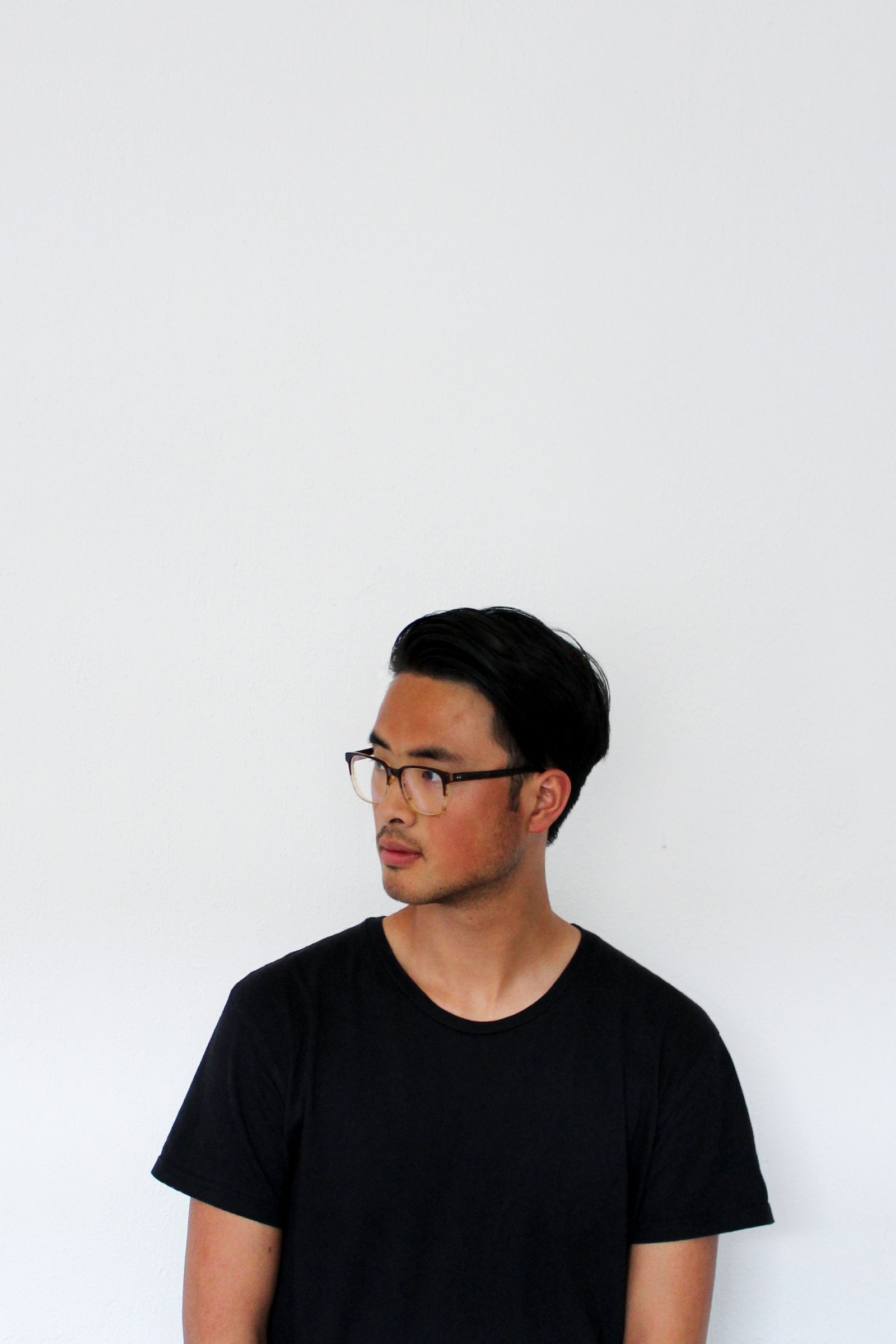
GRADUATION PROJECT
Ever wondered why people get bombarded with personalized ads and government statements to protect our privacy? Ever wondered why Facebook's data leak is a significant problem to our privacy rights? And why do we put a piece of tape on our laptop camera, and not on our phones?
Lawmakers are fighting for our privacy rights, and big tech-companies fail to protect our personal data. And yet, we as citizens don't care or necessarily witness these privacy problems in our daily lives. After analyzing my 2000 pages of personal data (retrieved from Linkedin, Google, and Instagram), I realized it's not easy to protect my mobile data from external parties. I could paste some tapes on my mobile phone to block my camera, microphone, and fingerprint scanner. However, it very effective, but it makes my phone useless. Luckily, we have data protection or encryption software that protects us, but it doesn't guarantee you to keep external parties away. The protection or incognito software is still owned by Whatsapp (Facebook), Chrome (Google), and other tech companies. Personal data and data protection is intangible, complex and it doesn't give users feeling of security. A combinations of problems that doesn't help us to understand why privacy is so important in our digital age. I also realized that the meaning of "privacy" is much more about a moment alone (or with someone else) without any external distractions. You never know if someone is watching you (panopticon effect). We witness private moments every day, even in public spaces: when we listen to music on the bus or having a jog by yourself.
The problem of intangibility and complexity of privacy inspired me to design a bunker to create a "safe house" or "physical incognito" for people who want to be offline for a short amount of time. It's a bit extreme, but you need to design this "extreme" building to be private in our digital age. The bunker concept is a metaphor that we are in a digital war with large tech-companies to protect our privacy. The building is made from three materials: stainless steel, concrete, and glass. I used the properties of those materials to block and filter signals from your smart device to make sure that you're fully offline. With visual features from glass, you can hide the person's visual identity with frosted glass. This is a physical representation of being incognito: someone is inside, but you can't see the person's face. Like in traditional bunkers, the building contains multiple chambers that show different functionalities of the building. One is called "MUTE" where you hide your facial and sound identity from the public surrounding, like large urban entrances, library, and workspaces. The other camber called "Offline," where you have to go walk downstairs to hide your facial, sound, and digital identity with a vault. This chamber is perfect for one and more people who want to talk privately face to face. The physical materials can't be outdated or hacked, and it's accessible for every user with a smart device.
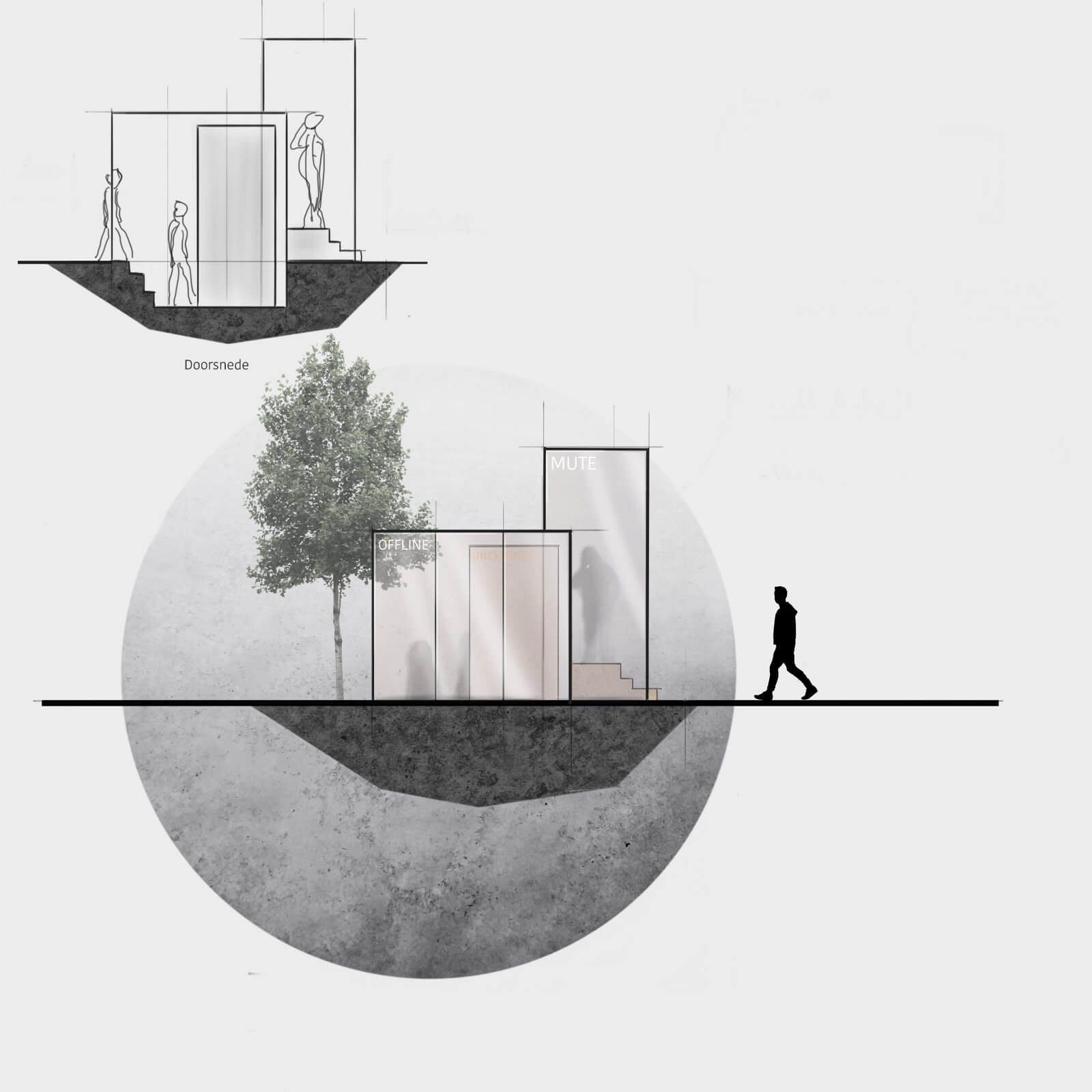
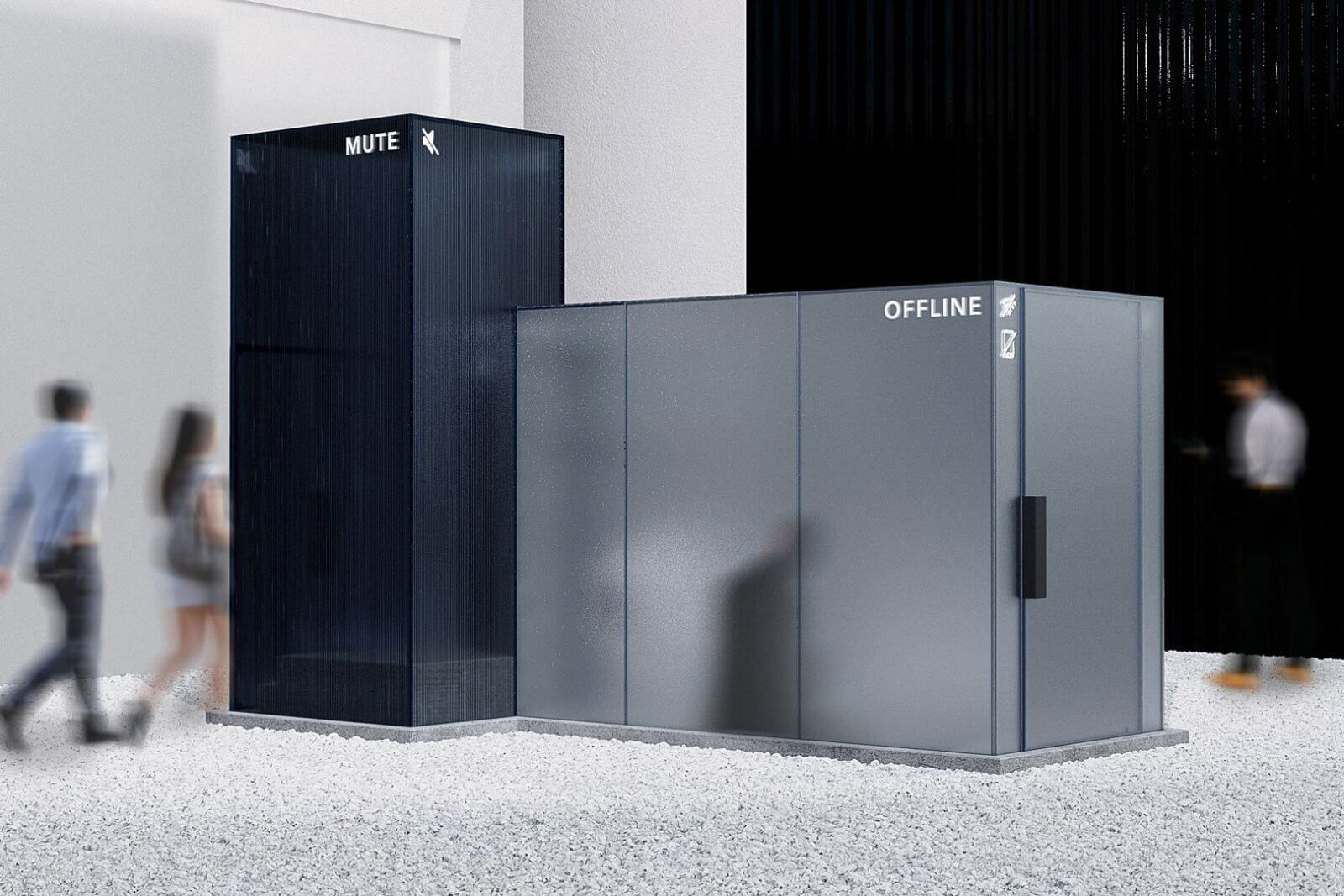
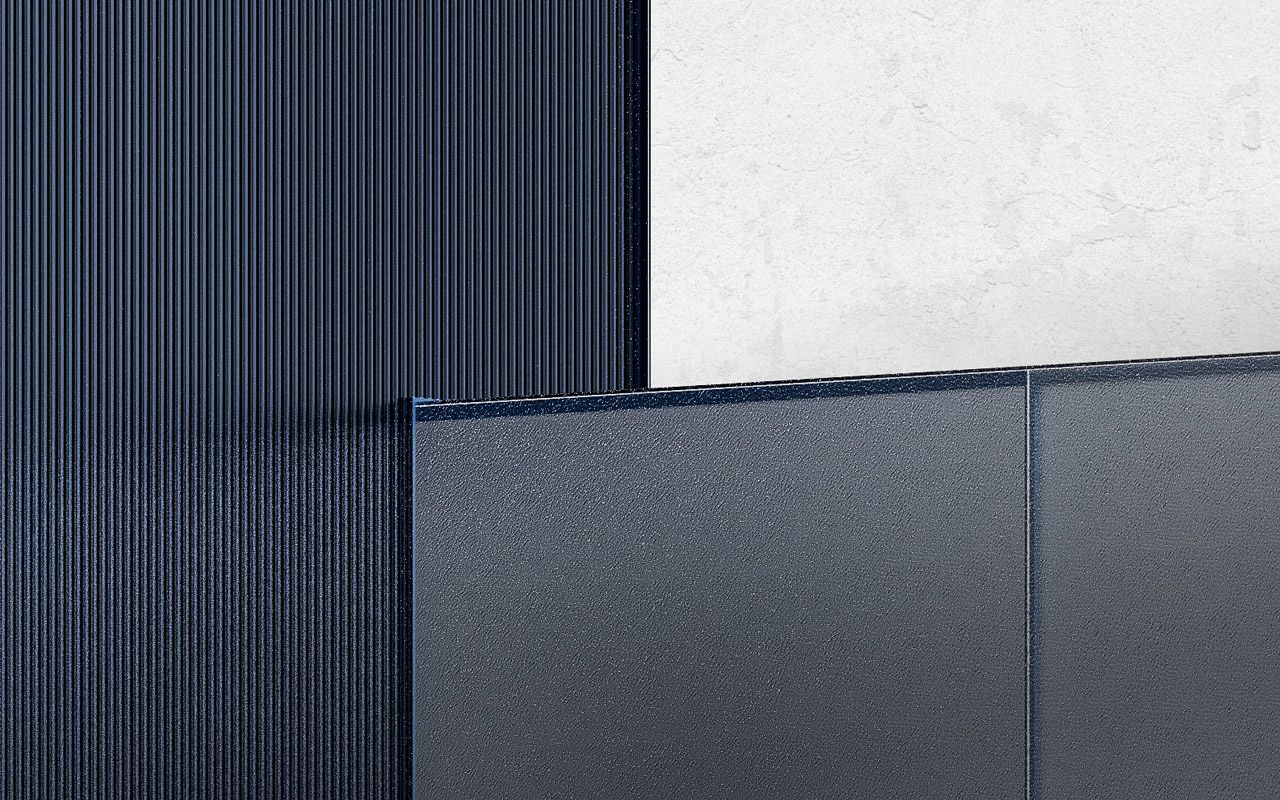

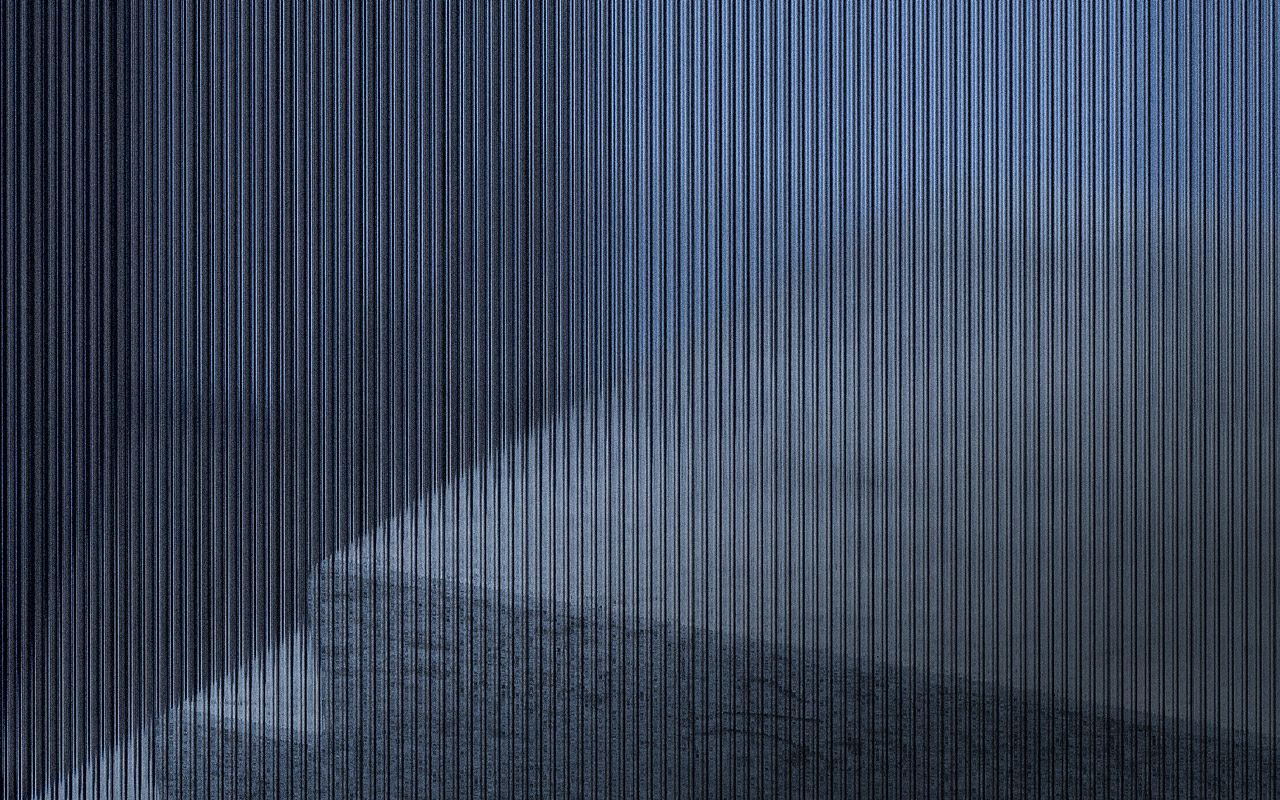
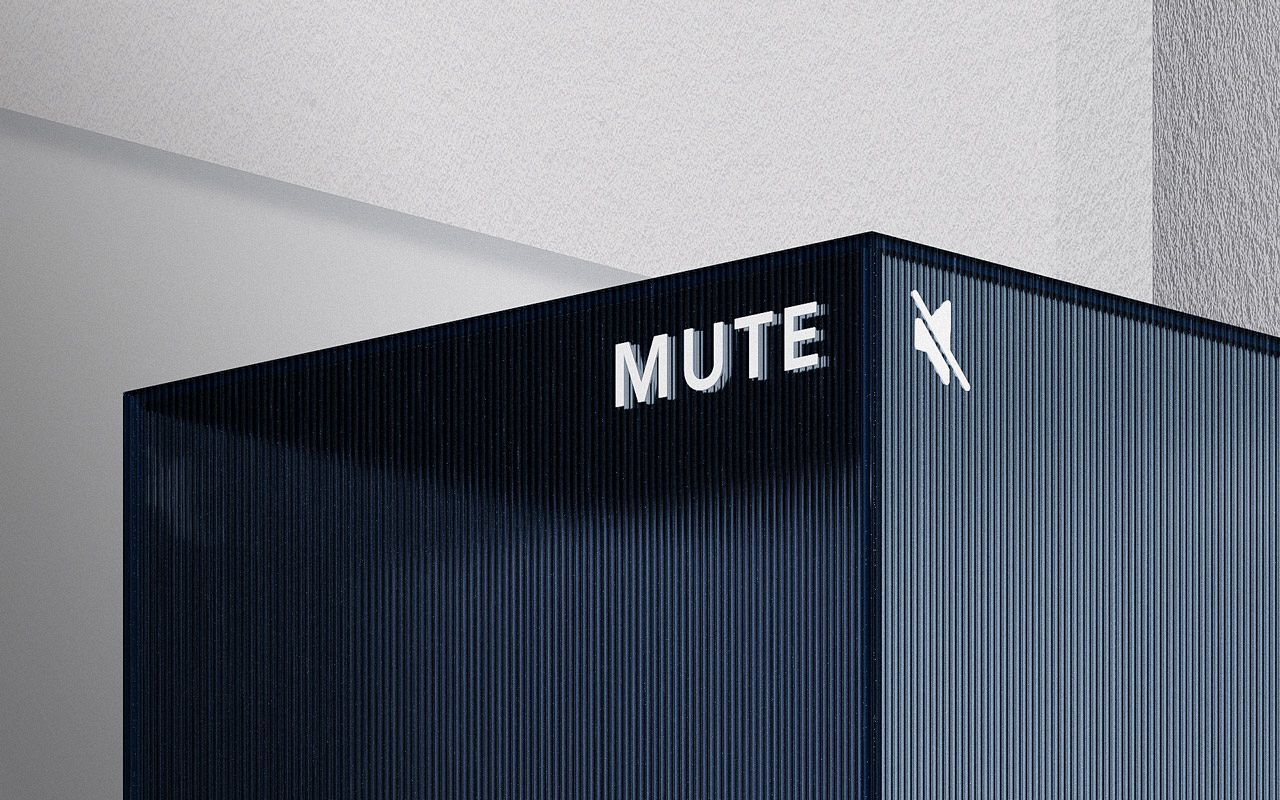
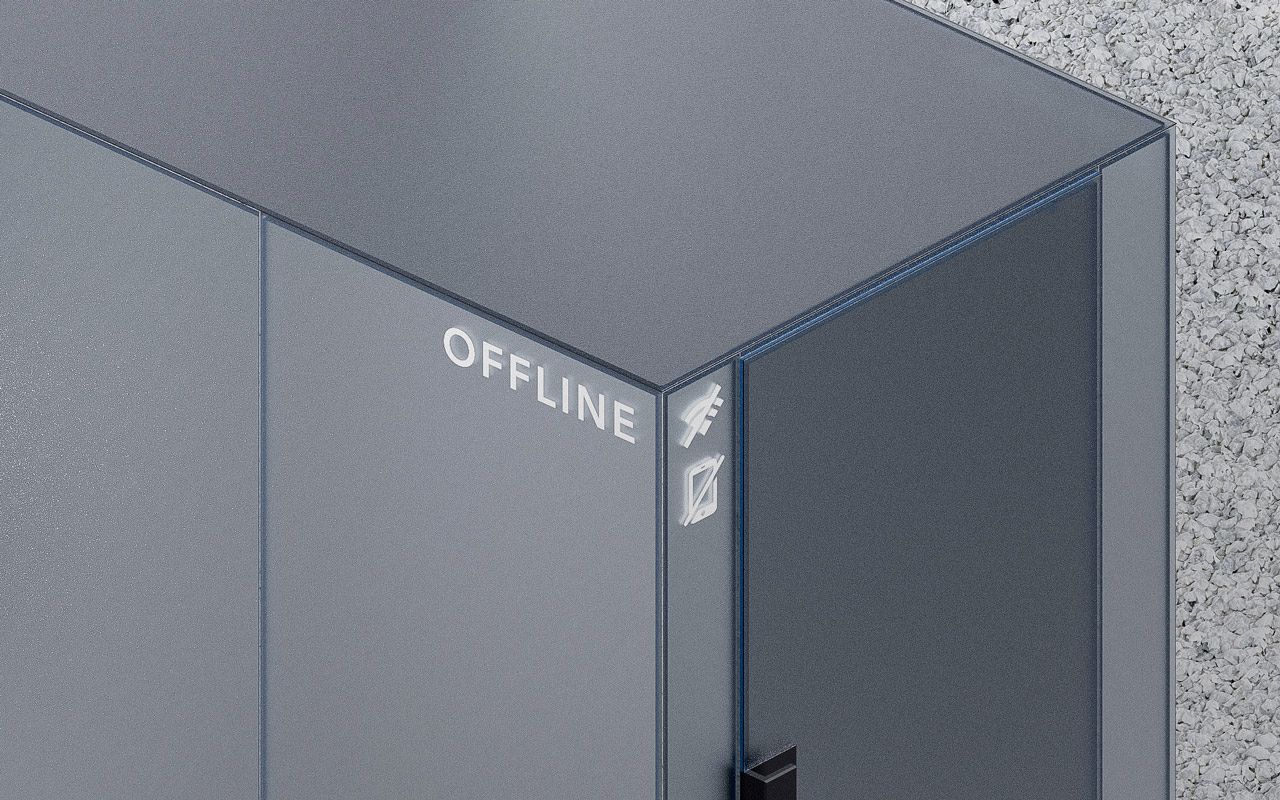
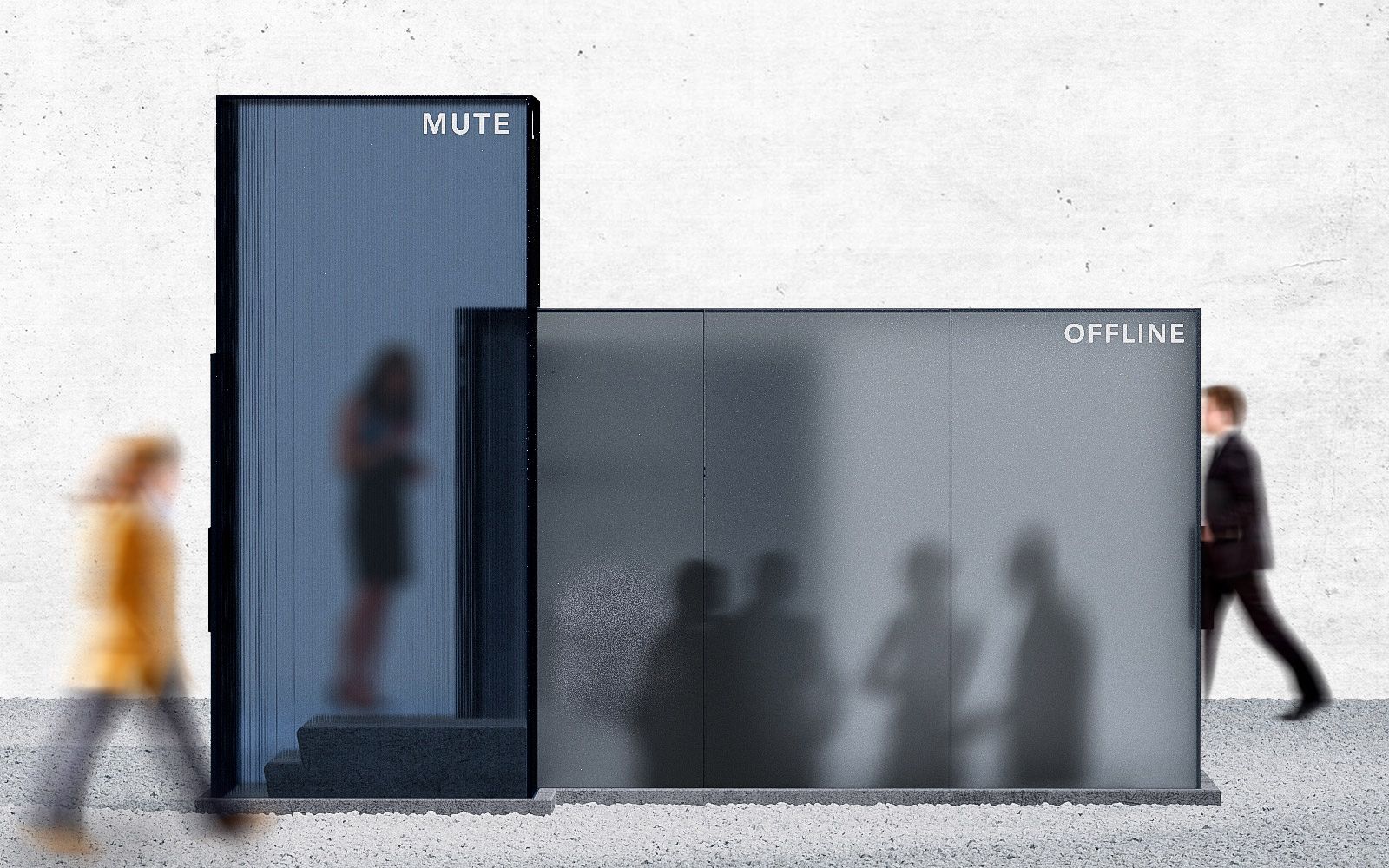
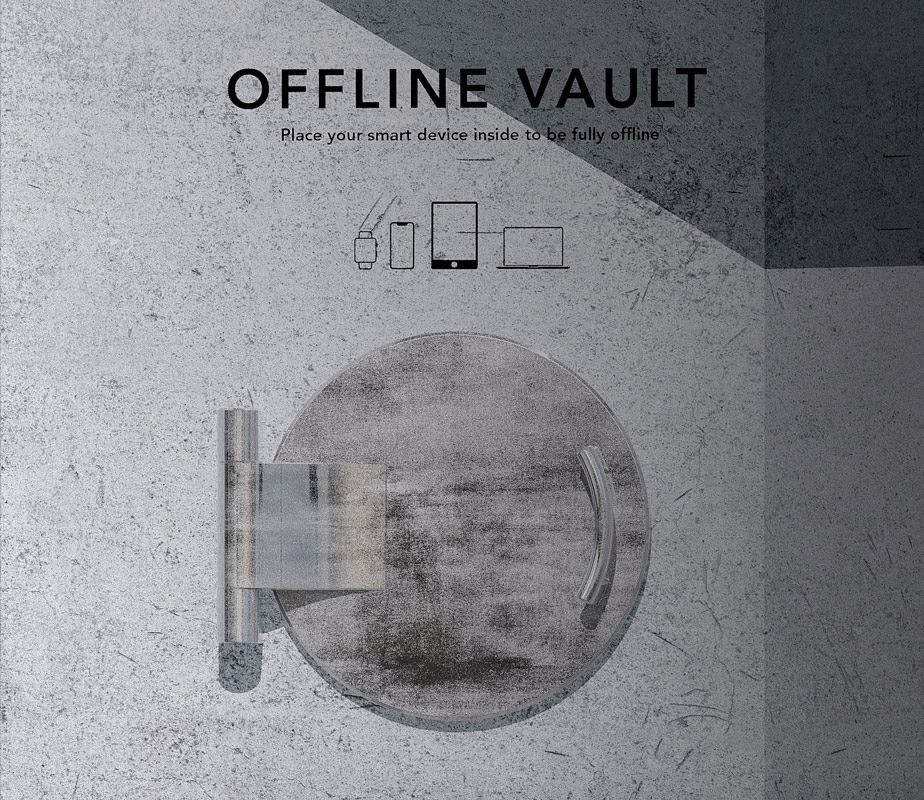
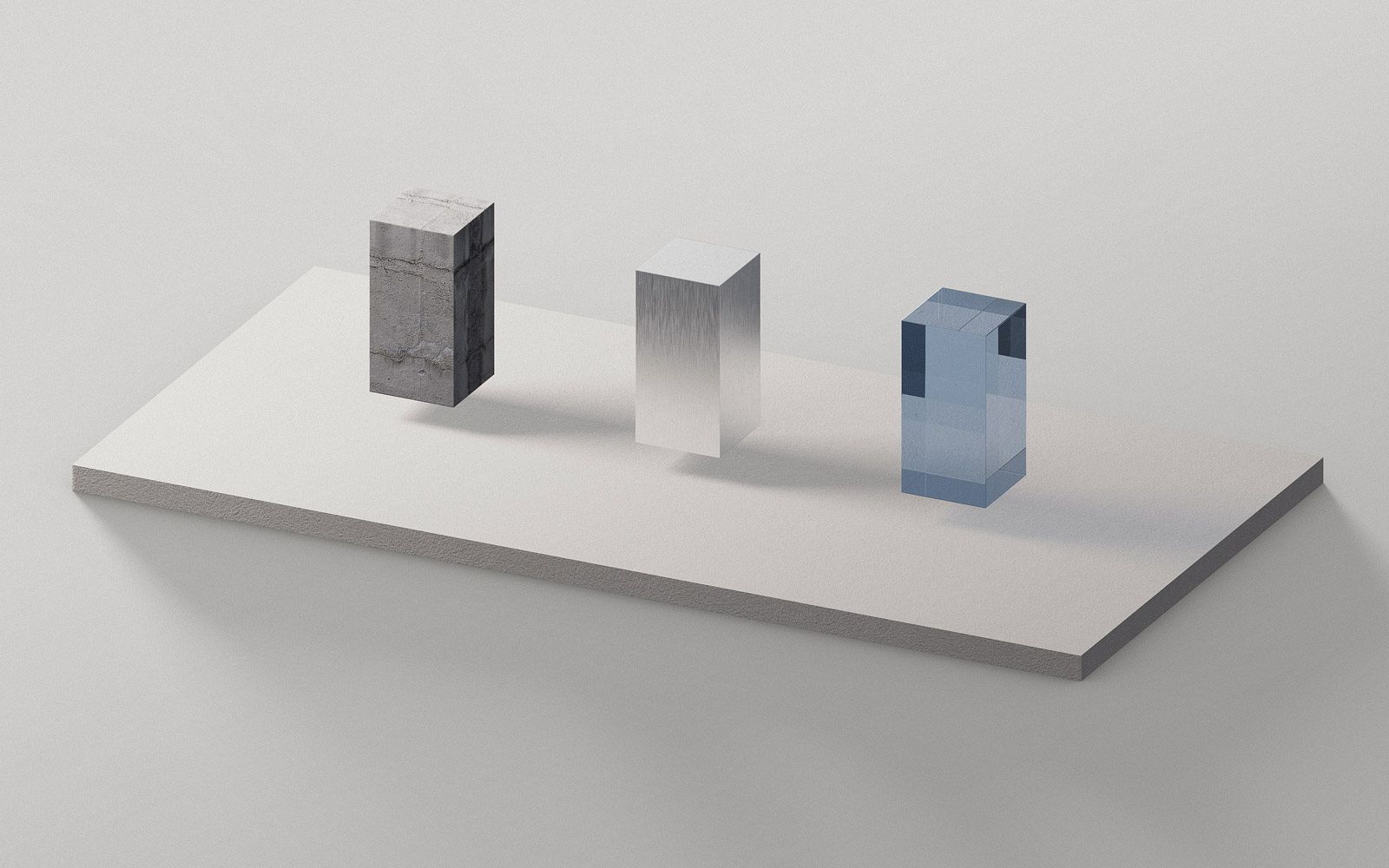
THESIS
Personal Data Ownership - Two thousand pages that describes who I am
The research was a broad study of the social-psychological reasons why humans are influenced by (digital) information, including the system of surveillance capitalism and a study on how the media portrayed "privacy." Together with a Data Scientist from eBay, we analyzed my 2000 pages of personal data and showed how Data scientists analyze our daily life behavior to understand my identity. When I printed out the first 500 pages of my personal data, I realized that I have something to hide: my private information and daily activities, which are well documented by tech companies. I'm being watched without knowing, and the gathered information is very accurate to my personal identity. As a result of my thesis, I was invited by the Dutch Ministry to have a dialogue with other experts about the ethics of data technology.